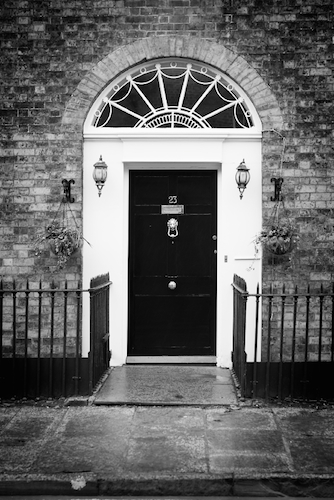Music has always been an important factor in my life. When I was a child, elementary school students in Illinois had to take music lessons (art too) several times a week. These classes involved learning how to read music and singing in a chorus. In the fourth grade, I was taught to play a recorder. The following year, my music teacher encouraged me to pick up an instrument. I chose the flute.
Yes, dear friends, I was a flutist.
Once I reached junior high, I had learned the instrument well enough to play in the school band. That’s when the competitions began. For those who’ve never participated in school band, the seating placement is often determined by talent and skill. Some teachers will simply assign you a chair based on his/her assessment of your abilities, but others will actively encourage students to improve their skills by competing for a chair.
The person who won the competition became 1st chair, and received the grand prize of playing all the solos. Sitting second chair meant your humiliation was on display for all to see; that’s right, you weren’t good enough to solo, but you do have to sit next to the winner and lament your lack of talent. In the flute section, second chair players received a consolation prize: the opportunity to play the piccolo (same fingerings as the flute, just a lot smaller).
Being the competitive sort, I spent many an afternoon practicing for these contests. I was bound and determined to sit first chair, and for most of junior high, I did so. But when I reached high school, I met my match. Holly was not only a great flutist, she was also an experienced pianist. To her, playing music was as natural as breathing.
Now I was friends with Holly — we obviously had similar interests — but in the band room, she was my musical nemesis, and every time the teacher held chair competitions, I would try so hard to beat her. Every time, I failed. Which meant, for most of my freshman and sophomore years, I sat second chair and played the wee piccolo while Holly enjoyed her spotlight seat and wowed audiences with her stunning solos.
During my sophomore year, however, the band teacher decided to bulk up the orchestra. He asked the top student musicians in the band to either play their own instrument or tackle a new one. Knowing I would never beat out Holly for the flute spot, I volunteered to try something new. The band teacher assigned me to the timpani. At first I was taken aback. What the heck did I know about percussion? And why would I want to play an instrument that put me all the way in the back of the room? But then, I figured what did I have to lose? There was only one timpani player in the orchestra so I was automatically first chair!
I’m glad I did. During the final concert, we performed the finale of the “William Tell Overture” (we even donned Lone Ranger masks, much to the audience’s delight), and since I was on the timpani, I got to lead the drum charge. It was a blast.
That same year, my mother obtained a piano and began to take lessons. She’d always dreamed of teaching music lessons but that dream was deferred by an unexpected teen pregnancy, marriage and two serious roadblocks: She couldn’t read music nor play an instrument.
Learning these two skills was quite difficult for her, and she often found herself sitting at the keys, utterly frustrated. This frustration only increased when one day, I decided to give the piano a try. I already knew how to read music, and learning the keys from her books wasn’t too arduous. After a few weeks of listening to me play, however, she threw in the towel and stopped practicing. Then she quit her lessons entirely, and signed me up for weekend piano classes. I loved ’em.
After we moved to Florida at the end of my sophomore year, I was forced to make an important decision: play in the school marching band or study journalism. As you can imagine, journalism won out. Although I continued playing the piano at home, I eventually stopped studying music once I left for college. Without an instrument at hand, I couldn’t practice.
Twenty years later, I once again have a piano in my home. My dear friend Mary decided to unclutter her Manhattan apartment, and offered me the use of her digital keyboard. Now that I’ve begun taking lessons via Youtube and Playground Sessions, it’s surprisingly wonderful to have music back in my life.
I’ve missed it so much.
(Photo by Cazgdesign. Used with permission.)



